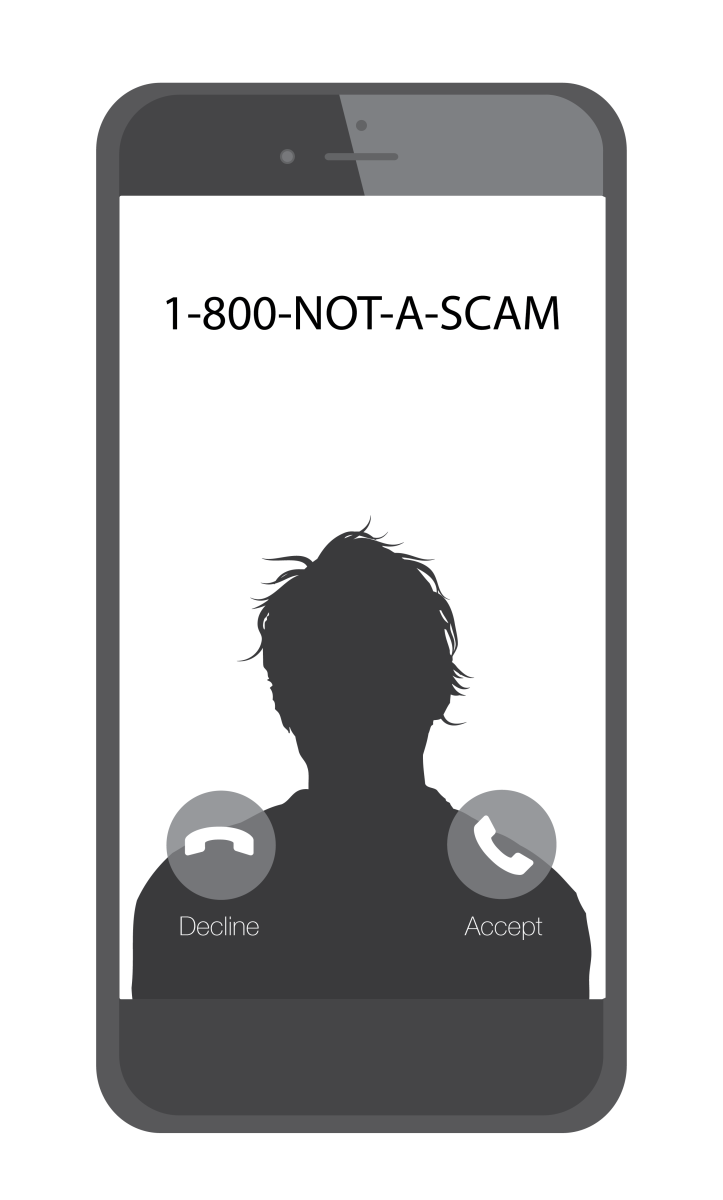With the beginning of the year underway, students are likely to receive emails and calls from scammers posing as law enforcement or other authorities to try to steal their credentials and other personal information.
According to Major Ian Kendrick of University Police is common for scammers to pose as different authority figures like law enforcement, University Police, an IRS agent or immigration services and will often ask for money.
“From the phone scams that we have seen over the past couple of years, usually targeting students, they are always going to say that they are with the IRS or law enforcement or immigration,” Kendrick said. “And they’re going to say you’ve got a warrant or an outstanding tax debt or you’ve got something and in order for you to clear it up, you’re going to have to pay us money.”
Kendrick said scammers typically target students at the beginning of the school year, looking for money through prepaid methods like debit cards and iTunes gift cards.
“It typically picks up throughout the beginning of the year and then it kind of tapers off,” Kendrick said. “But it will still continue periodically throughout the year.”
According to Mardecia Bell, chief information security officer for NC State Information Security Services, the beginning of the year is a prime time for scammers to contact students because many different student accounts are established during this time. Bell said scammers try to impersonate University officials to obtain information.
“At the beginning of the semester, there are a lot of things that students have to set up and they have to register for and so forth so the attackers, they are always looking for ways to get you,” Bell said.
Andrew Kotynski, the director of NC State Information Security Services, said that it is very common for students to be contacted by scammers who try to obtain their credentials and they can be disguised as different topics ranging from problems with class registration to job offers.
“I think the most common thing is people trying to steal credentials so they can gain access to the students’ accounts or even the employees’ accounts,” Kotynski said. “When they get into your account, they then have access to financial information, your home or personal information, your parent’s information.”
The office of Information Security Services serves many purposes for students on campus, one being to assist in getting NC State accounts back online that have been hacked.
“Our mission is to protect the university’s data,” Bell said. “So, we do that in a variety of ways, but one of the ways is if there are phishing or compromised accounts for students… we assist in getting them back online so that they can get back to their coursework.”
Along with encouraging students to be skeptical of emails or unknown phone calls, Kendrick said that University Police works with other departments on campus to educate students on how to avoid scammers.
“We work with our campus partners and we’ll tell students on the front end, even if they haven’t suffered any kind of monetary loss, we just give them good tips on how to protect their information,” Kendrick said.
Both Kendrick and Bell advised students to make their contact information private on the NC State Directory and social media accounts, as this is a common way for scammers to obtain contact information. According to Bell, the University will never ask students for any account passwords via email and receiving an email regarding that information is most likely a scam.
“The university will never ask for your password or your credentials via email, so if you ever get anything that’s asking you that then don’t click on it,” Bell said.
Kotynski also advised students to look at email addresses, links and caller IDs to try to avoid unknown emails or numbers. However, students who do fall victim to a scam should contact the University help desk.
“The first thing that they should do is change their password,” Kotynski said. “The second thing that they should do is contact the HELP Desk. The HELP Desk will route them to my team. We’ll take care of it directly and assist verifying that the account hasn’t been compromised, they can help reset anything that might have been set up.”
Students can contact the NC State HELP Desk by email at help@ncsu.edu of by phone number at (919) 515-HELP.








